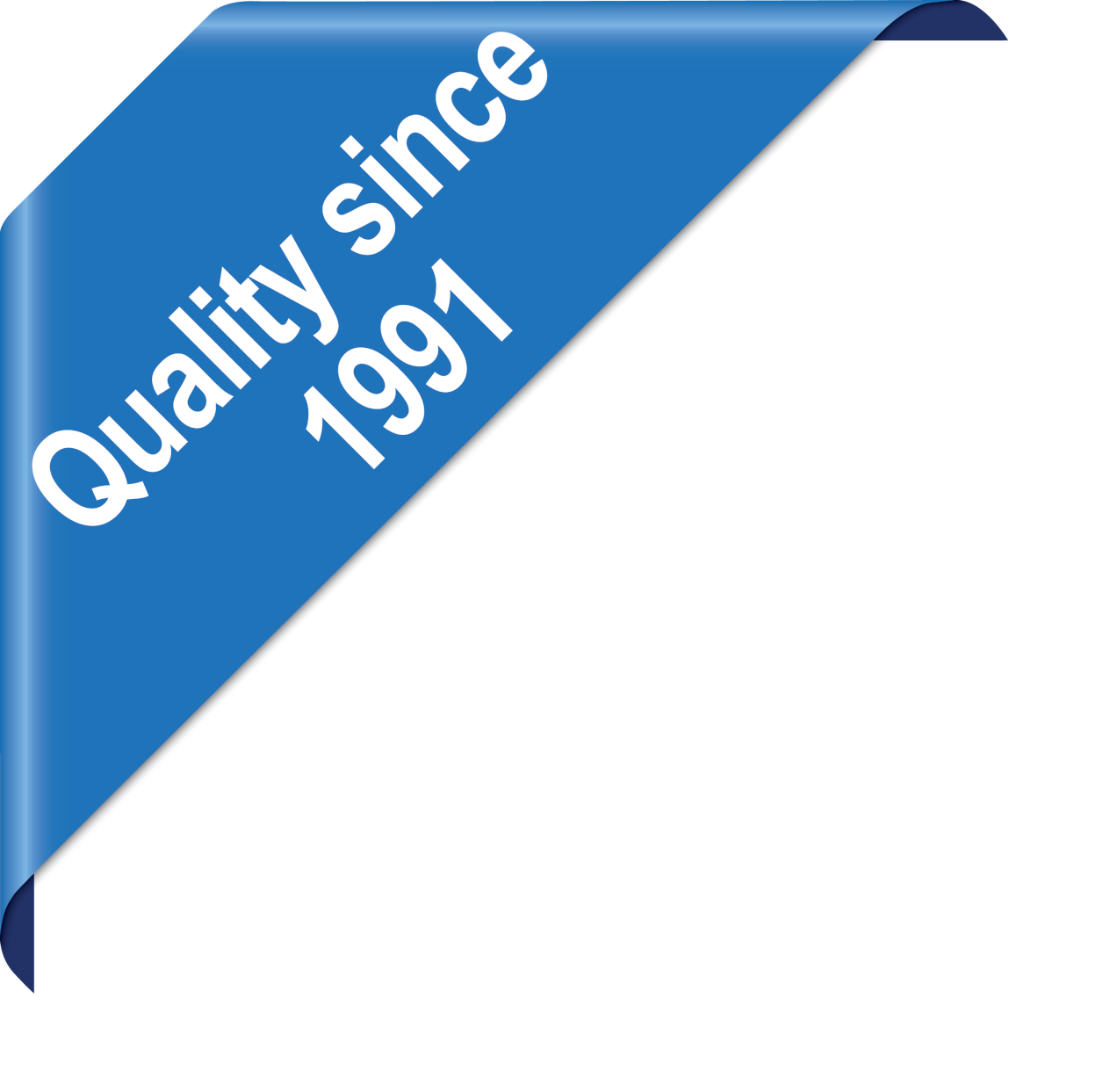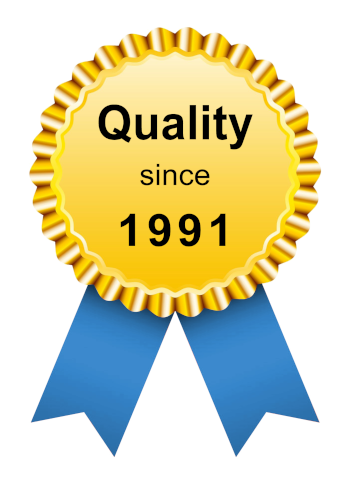

Appeal grammar school exam Zürich - what you need to know
Anyone who has not passed the Gymi exam in Zurich (grammar school exam) should, under certain circumstances, lodge an appeal against the grammar school exam decision. This can be used to challenge any examination errors and obtain a reassessment in the event of errors in content, or a retake of the examination in the event of formal errors.
In the following article, you will find out what an appeal is, what you need to bear in mind when lodging an appeal, how the appeal procedure works, what examination errors there are, what an appeal costs and what other procedures and steps you can take.
Prepare for your next grammar school exam with our Gymi courses!
Table of contents:
- What is an appeal?
- Things to consider when lodging an appeal
- Procedure of the Gymi exam appeal process
- What examination errors there are?
- What does a ‘Gymnasium exam appeal’ cost?
- Additional reconsideration procedure
- Clarification by telephone with an expert
What is an appeal?
An appeal is an appeal procedure in which the decision of an authority can be contested (definition of appeal). In principle, an appeal is also possible in the event of a failed grammar school examination, as the school's negative examination decision is a contestable official decision, whereby certain requirements must be met, including the appeal deadline, the form of appeal and the grounds for appeal.
The appeal can be used to criticise errors made by the school or the examiners during the examination. If the appeal is successful, the examination must be re-evaluated in the event of substantive errors. Formal errors generally lead to the candidate being allowed to repeat the examination.
You may also be interested in the following article:‘Tips for the grammar school exam 2026 (Gymnasium Zurich) and FAQs’
Things to consider when lodging an appeal
Anyone wishing to lodge an appeal against the Gymnasium examination decision must take several things into account. Among other things, an appeal must be submitted to the competent authority in due time and form, and must include a request and a statement of reasons.
Before lodging an appeal, however, it is usually necessary to check whether the examination decision was incorrect in the first place. To do this, you must first request the examination, including solutions, from the school. This is because neither the examination nor the examination solutions are included in the notification of results.
The appeal period is 30 days. This means that the appeal must be submitted to the Directorate of Education within 30 days of receiving the examination results.
The appeal must also be submitted to the Directorate of Education in German and in writing, i.e. on paper, in duplicate. A duplicate means that the appeal must be printed out twice. Both copies must be signed by the legal representatives (usually the parents), and the place and date must also be indicated on the signature.
But how do I write an appeal? The appeal must contain a request and a justification for this request.
If you are referring to errors in the content of the examination, you should write as a request in the Gymnasium examination appeal that you are requesting the reassessment of individual examination sections, whereby these examination sections must be named precisely. In the case of formal errors, you should apply to retake the examination. In the explanatory statement, you must then write specifically why you are criticising the examination. You must specify the examination errors and explain why these errors affected the examination result.
Finally, the appeal must be accompanied by the contested decision (a copy is sufficient), i.e. the notification of the examination result. Other documents and evidence relevant to the appeal proceedings must also be enclosed; here too, copies are sufficient. All these documents must also be enclosed with the appeal in duplicate.
Procedure of the Gymi exam appeal process
Once the appeal has been received by the Directorate of Education, the receipt of the appeal is confirmed in writing to the appellant.
The school that made the examination decision is also contacted and, as a rule, a statement and the files are requested from the school. If an examination decision only contains grades to justify it, the grades themselves are usually only explained to the appellant by the school after the appeal has been submitted. For this reason, the appellants can still submit their comments to the Directorate of Education after receiving the reasons for the grades.
Once all comments have been received and no further clarification is required, the Directorate of Education makes a decision on the appeal. This decision will also include information on how to appeal against the decision.
In principle, an appeal has a suspensive effect, meaning that the contested decision only becomes legally binding once the appeal decision has been made or legal action has been taken and the respective appeal periods have expired. However, in the case of negative examination decisions such as a failed Gymnasium examination, an appeal does not mean that the examination is initially deemed to have been passed.
What examination errors there are?
There are formal examination errors (procedural errors) and material examination errors (substantive errors) that can be challenged as part of an appeal. Formal errors refer to errors in the examination procedure that must be challenged as quickly as possible, for example in the case of formal errors during the examination as soon as the error occurs during the examination.
Formal examination errors
Formal examination errors include the failure to recognise a justified excuse if the examinee is late, the failure to recognise a justified inability to take the examination, the bias of an examiner, changing the examination task during the examination without an appropriate extension of writing time or disruptive noise during the examination without an appropriate extension of writing time.
Materielle Prüfungsfehler
Material examination errors include errors that affect the content of the examination, i.e. basically correction errors or assessment errors. A material error occurs, for example, if the points achieved are added up incorrectly or if answers are overlooked. It is also an error if the examiner assesses something justifiable as unjustifiable.
The examiner's assessment of an essay can also be incorrect if it is done arbitrarily, as the Administrative Court of the Canton of Zurich ruled in one case.
If you are repeating the Gymnasium exam, prepare for the Gymi exam in our Gymi courses!
What does a ‘Gymi exam appeal’ cost?
If you lose in the appeal proceedings, as the appellant you will generally have to bear the costs. These are estimated by the Education Directorate of the Canton of Zurich at between CHF 500 and CHF 1500.
If the appeal is withdrawn before the decision is made by the authorities, the costs are usually reduced.
Additional reconsideration procedure
In addition to the appeal against the Gymi examination, you can also submit a request for reconsideration to the school in which you make the same objections as in the appeal. If the school honours your objections, you can withdraw your appeal to the Directorate of Education.
Due to the impending expiry of the appeal deadline, the reconsideration procedure should not be used as an alternative to the appeal, but rather in parallel with the appeal procedure. This is because a request for reconsideration does not suspend the appeal deadline.
Clarification by telephone with an expert
There are also schools that offer telephone clarification of questions about the exam with subject experts. If the school admits to examination errors, you should treat this as a non-binding admission. Only when the school confirms the examination error in writing and corrects the examination decision can you assume that it is binding.
Under no circumstances should you miss the appeal deadline during the telephone clarification of the examination performance, i.e. if the appeal deadline is about to expire, you should still lodge an appeal at the same time as the telephone clarification to be on the safe side.
It is advisable to consult a lawyer specialising in examination law if you wish to lodge an appeal, as examination law is a specialist subject that is better understood by lawyers who specialise in it than by laypersons. In addition, we were unable to go into all the details to be considered in this article.
Book a preparatory course for the Zurich long-term grammar school now!
Book a preparatory course for Zurich short-term grammar school now!
Book a preparation course for the Kanti exam (grammar school exam) in the canton of Aargau now!
Sources:
https://www.lern-forum.ch/blog/gymipruefung-tipps-2025-faqs-zuerich
https://www.zh.ch/de/bildungsdirektion/generalsekretariat-derbildungsdirektion/rekursverfahren-bildungsdirektion.html
https://www.tagesanzeiger.ch/gericht-urteilt-deutschaufsatz-falsch-benotet-140609517138
https://www.zh.ch/de/bildungsdirektion/generalsekretariat-derbildungsdirektion/rekursverfahren-bildungsdirektion.html
https://www.zh.ch/de/bildungsdirektion/generalsekretariat-derbildungsdirektion/rekursverfahren-bildungsdirektion.html
https://www.lern-forum.ch/en/gymnasium-preparation-zurich/long-term-gymnasium/registration
https://www.lern-forum.ch/en/gymnasium-preparation-zurich/short-term-gymnasium/registration

Second-chance education, university: financially worthwhile?
Is a second education financially worthwhile, i.e. via adult grammar school graduation to university, in order to become a lawyer or doctor in your mid-30s?
Teaching artificial intelligence in schools?
Should artificial intelligence be taught in schools? So far, AI is not part of the curriculum. AI skills becoming increasingly important in education, careers.
New Vocational Baccalaureate Regulation 2026: key changes
New Vocational Baccalaureate Regulation 2026 come into force 1 March 2026. We outline the key changes here, including the Vocational Baccalaureate 2030 project.



